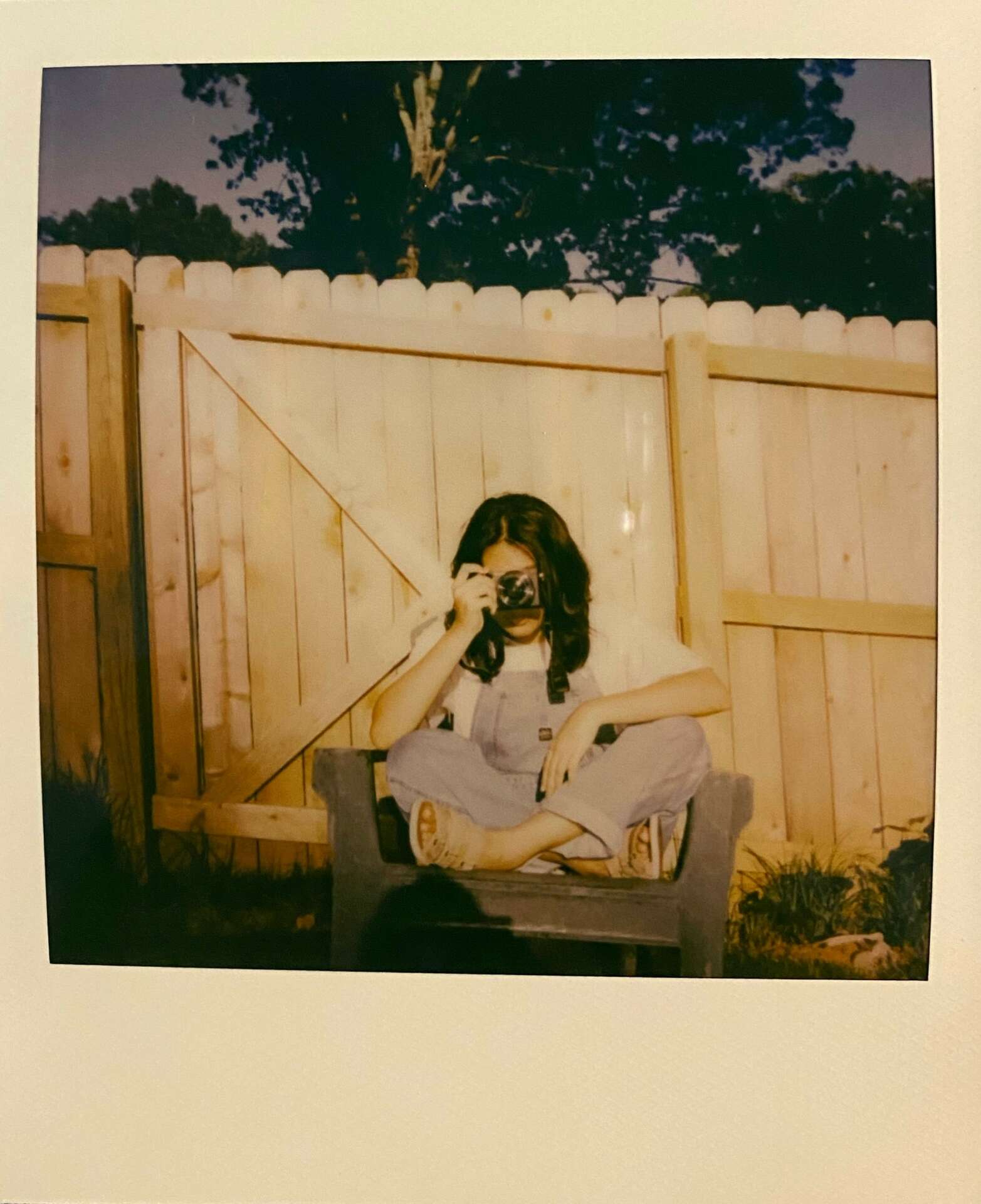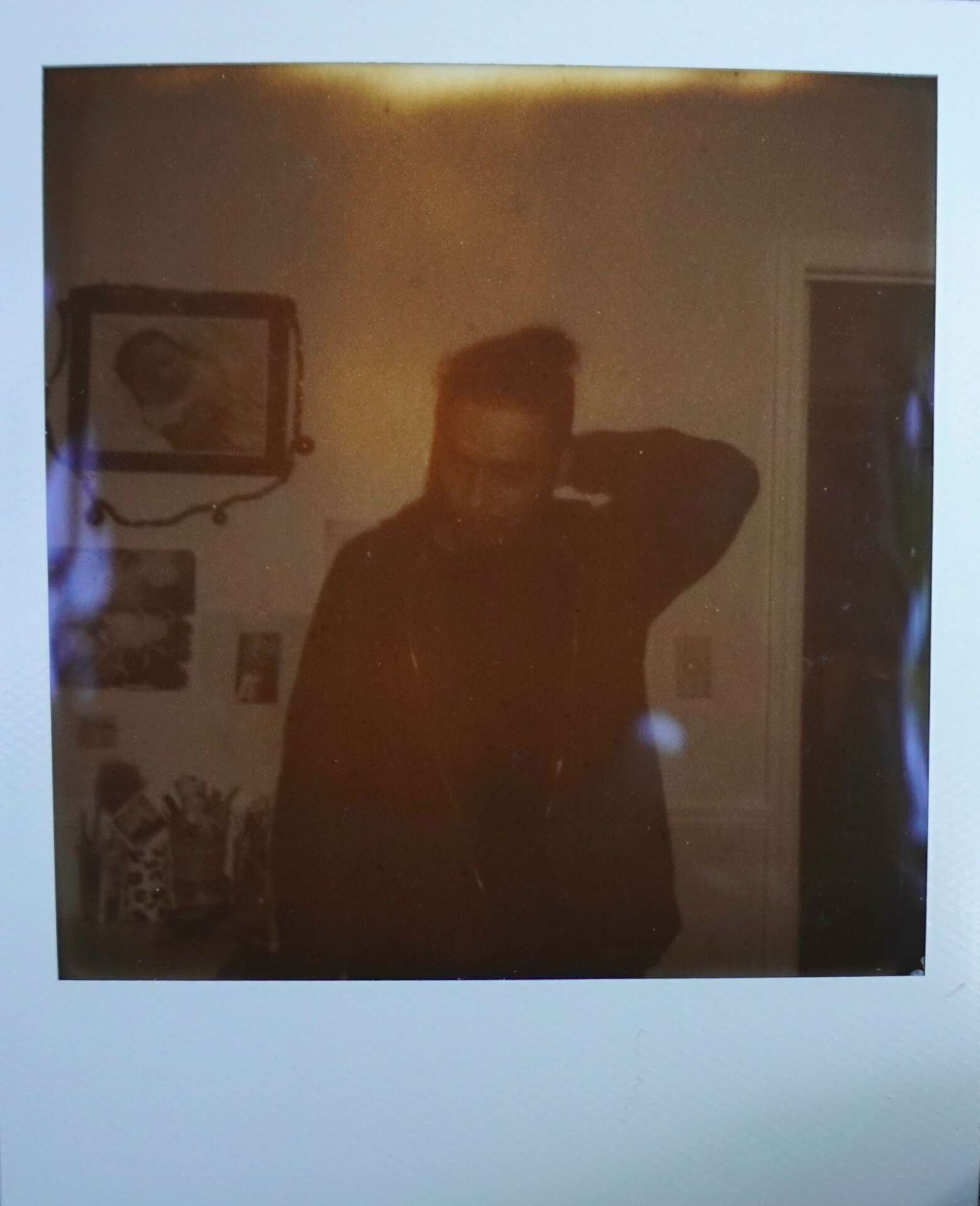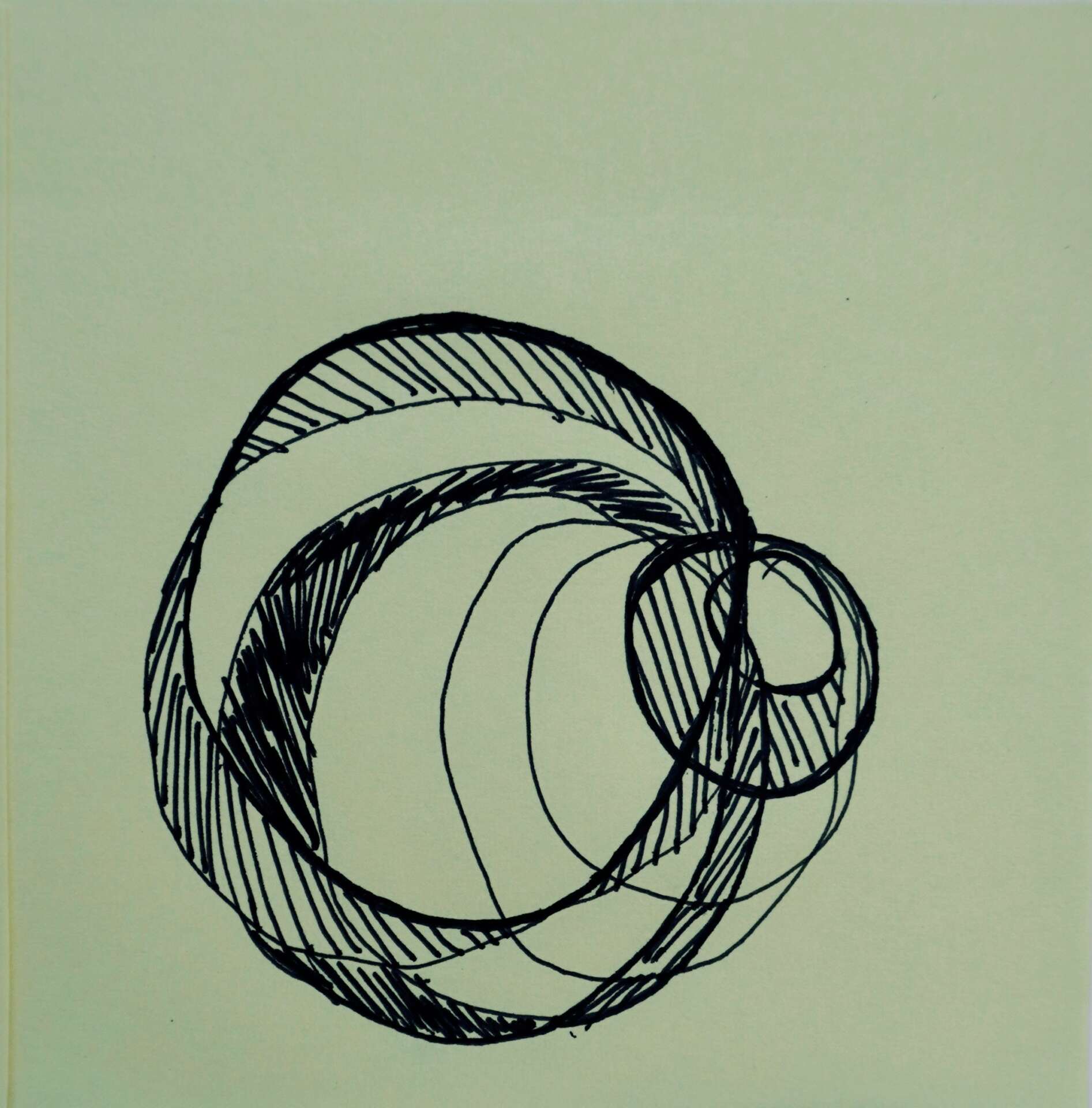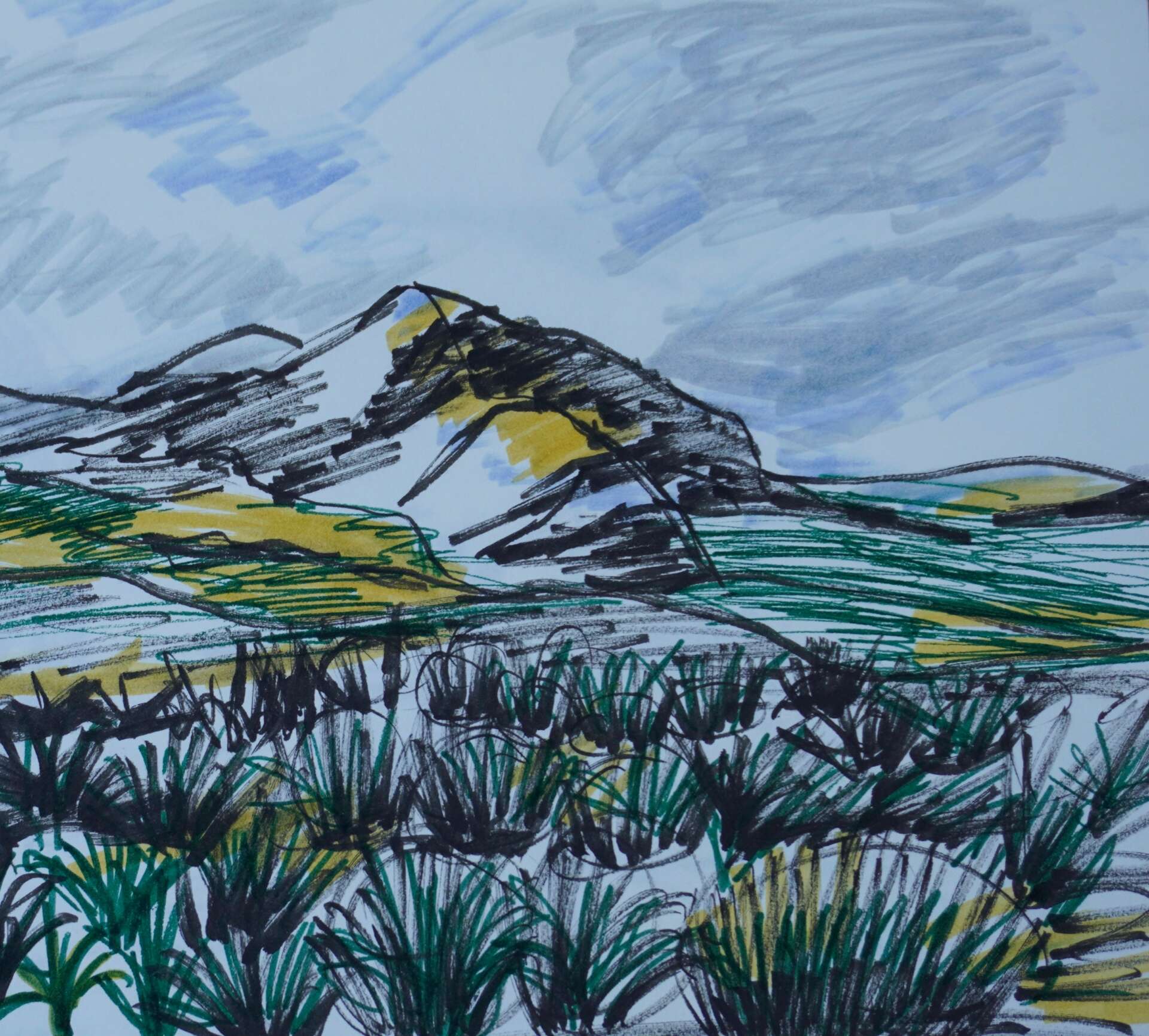We’re excited to introduce you to the always interesting and insightful Yari Mena. We hope you’ll enjoy our conversation with Yari below.
Hi Yari, thanks for joining us today. We’d love to hear the backstory behind a risk you’ve taken – whether big or small, walk us through what it was like and how it ultimately turned out.
My risk taking story starts with me taking literally no risk at all and enduring a series of L’s. I had just graduated from GSU with an art degree in 2019, thinking I would try to find a job at a museum. I was at the time, working part time at a non-profit organization to pay my bills as a student, sort of bouncing around programs and sites. When I graduated, I weighed my options and decided to stay at that job instead of having to look for another one. The idea was that I would stay for a year to build a healing arts project, but mainly work on other tasks, and then I would go on my merry way.
Then the pandemic hit and I stayed a bit longer than expected.
Then, right before the vaccine became available, I caught a mild case of covid. I returned to work after testing negative, happy to be back, but struggling to focus the way I had before and feeling dizzy easily, and often. I saw a doctor for the residual effects I was experiencing and received medication for it.
A couple of weeks later, I felt my heart slow down and stop briefly. Everything went black and I woke up on the shower floor. I was out of the office for a week before I went back. The rest of that spring was filled with doctor’s appointments, visits to the cardiologist, and of course, work. Somehow, I would not let myself stop working despite constant chest pain and escalated residuals. Even though something wasn’t working for me, and it hadn’t been for a long time, I just couldn’t admit it to myself or others. I was grateful to be employed during that health scare, but I decided to go part time at my job a couple of months after my collapse, working only 4 days a week instead of the full 5. I still had bills to pay, but on my day off I could rest, paint or draw a bit, paint or draw a little, and consult with a life coach as I wrestled with my mortality and figured out what needed to change if I were granted more time on this earth.
I thankfully recovered in the fall. My heart was back to functioning mostly normally and any consistent discomfort and pain in my chest was gone. My energy levels were a little closer to what I was used to prior to the collapse and I finally had the physical capacity to do something more creative with myself- and I already was! I was doing freelance pieces on the side for Brite Bodies, a furniture designer duo in East Atlanta, which was super fun!
Other factors prevented me from getting even deeper into my practice. My family began experiencing their own set of health issues, money became even tighter, and I felt a large responsibility to help. My family was doing everything they could to support me emotionally and even encouraged me to look for a new job or take a few months off. Despite all of this support, I had already stubbornly settled into my routine, and it would be tough to move me, especially with my family’s stability up in jeopardy. But soon enough I admitted that my job wasn’t a good fit anymore and that it was time to go.
I reached out to an amazing artist and previous professor of mine, Lauren Peterson, who encouraged me to apply to an internship at an arts center in Colorado, where I could get studio management experience and assist in artist workshops over the summer. I applied, interviewed, and was offered a spot in the cohort a few weeks later. I would have had several weeks to determine when to put in my two weeks notice, and make a little more money before I left. However, a whirlwind of events at my job that week convinced me to leave that Friday at a moment’s notice- not even a week after receiving and accepting the internship offer. Being part of the great resignation was not a risk I had calculated for, and terrified me for a few days way more than leaving the state on my own did.
But, in the end, I have no regrets. It all came together to get me to where I am now. I will, however, advise other young professionals to avoid burning bridges. Leave your job on good terms if you can. That said, there may be non-negotiable moments in your career when you feel compelled to draw a line in the sand and walk away. It’s not the end of the world if that happens. If you believe in your abilities and are confident in your work ethic and quality, doors will open for you. What saved me was my family’s support, having some emergency cash saved, and a temporary routine to replace my old one before heading on to my next job. It can definitely be scary not to know what comes next, but when it’s for something that truly resonates with your purpose, it’s less frightening and more exciting than anything. Even if the ground shakes, you really never know what opportunities lie ahead if you don’t search and take the risk!




Yari, love having you share your insights with us. Before we ask you more questions, maybe you can take a moment to introduce yourself to our readers who might have missed our earlier conversations?
I’m a second generation Mexican creative living in the Atlanta metro area, a GSU art alum, and abstract artist still finding my way. I’m very fortunate to have a strong and supportive family. My dad was a foreman for a painting company growing up and my mom stayed home with my siblings and I until we were all in school, then she worked part time. Outside of work, my mom has a good eye for decorating our home with what we had and curating frames around the house: whether they were frames with printed art she bought from my madrina or family pictures. She instilled a strong work ethic in me, anything she does, she gives her best.
Though I’ve never heard him refer to himself as a creative or an artist, my dad’s creative and curious spirit definitely influenced me growing up. My dad is a jack of all trades: part mechanic, part carpenter, previously part welder, the list goes on. He’s very limited in his dexterity nowadays, but he is a wealth of knowledge. He continues to provide advice and encourage me when I express interest and struggles in working in the third dimension. As an adult I can appreciate his side projects so much more and am inspired by his journey.
Aside from my family, I’d be lost without art. The art-making part of my life is pretty simple: I make what I want, like and can make; and if people like it, I get to sell it. I like working the most with watercolor, gouache, graphite, ink, and I love taking and working with photographs, though I wouldn’t call myself a photographer.
Right now, I’m really interested in creating photographs and ambidextrous drawings, though I’m still trying to figure out how to marry the style of fluid ink painting I’ve done in the past to help push these less developed ideas that I have today. Although my creations don’t always have a cohesive style across the different mediums I use nowadays, especially since I’m at a turning point in my art-work approach, the themes I generally explore in my work are: connection, memory, and mortality from a very personal perspective.
I also just started a blog on my website and in my link tree as a way of documenting my time in the west!
What do you think is the goal or mission that drives your creative journey?
I hope to one day work as an art educator, where, in addition to teaching art techniques, I expose students to a wide range of careers in the arts. My goal is to inspire more students from minority backgrounds to pursue creative careers and demonstrate the ways art can be used to address non-arts-related concerns in their community. I think the best way to achieve this goal is by placing myself in these careers and growing my network. I want future artists like me to be more aware of what their options could be, have a better idea of how to get there, and also encourage art lovers to promote a deeper appreciation for the arts and artists in their communities among folks who may not consider themselves artists or creatives. 


What’s the most rewarding aspect of being a creative in your experience?
I feel that many times my creativity gave me a pass to be more silly or whimsical in otherwise more serious spaces. Having the freedom to be the most authentic version of myself and be able to consistently show up as myself is so freeing.
I also love knowing I have license to do things differently, to go against the grain, and explore! That experimentation is reflected in the images I chose for this interview. It’s more of a raw sketchbook tour of ambidextrous drawings and Polaroid compositions than a finished work showcase like I’ve done previously.
I’m a lot more forgiving of myself now that I’ve accepted myself more as an artist than when I was a student, especially when it comes to my life path (but I think that gentleness and forgiveness is for artists and non-artists alike).
I hope my responses are encouraging to anyone struggling with their creative path.
Contact Info:
- Website: https://www.yarimena.com/
- Instagram: https://www.instagram.com/yari.mena/
- Linkedin: www.linkedin.com/in/yari-mena
- Other:
https://linktr.ee/yarimena
https://www.yarimena.com/blog
Image Credits
- Artist Photo: Rose Shine
- Manipulated photograph: Geneley Childress/ Flatline Cinema


